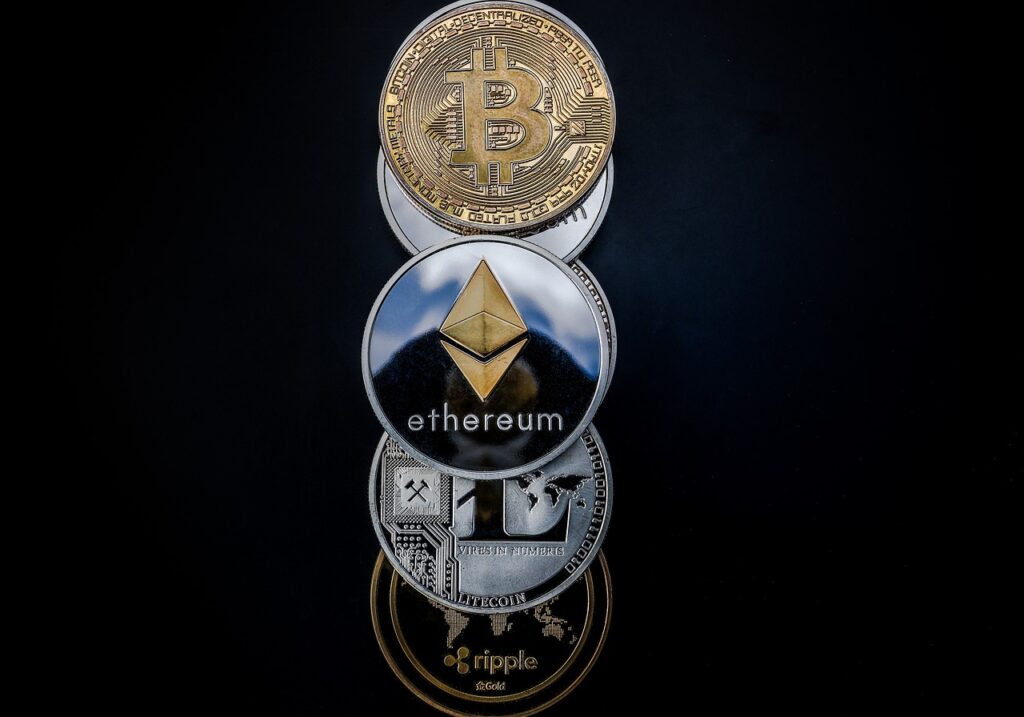A spot Exchange-Traded Fund (ETF) is a type of investment fund that tracks the price of an underlying asset—in this case, Bitcoin. Unlike futures-based ETFs, which rely on contracts predicting the future price of Bitcoin, spot ETFs hold the actual asset. When you invest in a spot Bitcoin ETF, you’re essentially buying shares in a fund that directly owns Bitcoin.
Recent SEC Approvals and the Road to the ETH Spot ETF
After years of deliberation and multiple rejections, the landscape began to shift. In 2023, the SEC approved several spot Bitcoin ETF applications. This marked a significant milestone for the crypto investment community. Financial institutions like Grayscale Investments, known for its Grayscale Bitcoin Trust (GBTC), were among the first to receive approval after addressing SEC concerns like market surveillance and custody solutions.
The Race to Legitimize Crypto in the Investing Field
When a company finds that it has saturated one of its markets, it seeks out new audiences to grow said market. This is one way to understand the increased push by many companies for the approval of a crypto-backed spot ETF. Seeking a larger audience was, in essence, what FTX’s SBF aimed for by investing heavily in Super Bowl ads and influencers like Kevin O’Leary and Tom Brady.
A lot of FTX defenders tend to blame the general lack of investment knowledge of FTX’s main audience of users for any extreme losses. Maybe this would be a more convincing argument if major institutional investors like Blackrock and Sequoia had not also lost money on their investments in FTX.
None of this is to say that the involvement of institutional investors and well-known sponsors are any kind of shortcut to being reassured about the trustworthiness of your investments. They aren’t! Always rely on financial experts with a fiduciary duty to not mislead you when weighing the health of your investments.
In the case of FTX, there are still many questions around how a highly rated Due Diligence team at Bain managed to sign off on FTX’s embarrassingly sparse and insufficient accounting practices and financial controls. Many institutional investors who lost big on FTX trusted Bain’s sign-off, to disastrous ends.
History of Spot Bitcoin ETF Applications
The journey to establish spot Bitcoin ETFs has been long and complex. The first notable application came from the Winklevoss twins, Cameron and Tyler, in 2013. As co-founders of the Gemini cryptocurrency exchange, their proposal aimed to create a regulated and accessible investment product for Bitcoin.
However, the U.S. Securities and Exchange Commission (SEC) did not respond to their proposal – showcasing the SEC’s lack of interest in the matter at the time. Multiple other applications were rejected over the years due to concerns about market manipulation and lack of regulatory oversight.
This quote from Investopedia captures much of the SEC’s most common pushback to this style of ETF:
“While several countries have embraced both types of ETFs, U.S. regulators were initially hesitant due to issues of market manipulation and custodial risk. The U.S. Securities and Exchange Commission approved the first 11 Bitcoin spot ETFs in the United States on Jan. 10, 2024. Bitcoin futures ETFs had already been trading since 2021.”
The Latest Developments
Companies like Grayscale were finally approved to operate the Grayscale Bitcoin Trust (GBTC) as a spot Bitcoin ETF in January 2024. Over the past year, the discussion of a crypto spot ETF reached a fever pitch, especially as the first few applications to operate trusts as spot ETFs were approved. This culminated in a long-awaited announcement on July 23, 2024 – the approval of Spot Ether ETFs by the SEC, with trading starting the next day.
As of Tuesday, July 23, several spot Ether ETFs had effective prospectuses. This means that the SEC has cleared them for trading. List below:
- 21Shares Core Ethereum ETF (CETH)
- Bitwise Ethereum ETF (ETHW)
- Fidelity Ethereum Fund (FETH)
- Franklin Ethereum Trust (EZET)
- Invesco Galaxy Ethereum ETF (QETH)
- iShares Ethereum Trust ETF (ETHA)
- VanEck Ethereum ETF (ETHV)
- Grayscale Ethereum Trust (ETHE)
- Grayscale Ethereum Mini Trust (ETH)
Investing in a Spot ETF vs. Owning Stocks or Crypto Outright
Ownership Structure:
- Spot ETF: When you buy shares of a spot ETF, you purchase a stake in a fund that holds Bitcoin. You don’t directly own the Bitcoin; the ETF does. Your shares represent a proportional interest in the fund’s Bitcoin holdings.
- Stocks: When you buy stocks, you purchase shares in a company, becoming a partial owner. Your investment’s value depends on the company’s performance and market perception.
- Cryptocurrencies: When you buy Bitcoin or other cryptocurrencies outright, you directly own the digital assets (and all the risks implied in outright ownership of an asset)
Accessibility and Convenience:
- Spot ETF: Traded on traditional stock exchanges, and accessible through regular brokerage accounts. This simplifies the process for investors familiar with stock trading.
- Stocks: Widely accessible through brokerage accounts with familiar processes for buying, selling, and holding.
- Cryptocurrencies: requires managing digital wallets, private keys, and learning to deftly navigate confusing and risky crypto exchanges.
Regulation and Security:
- Spot ETF: Subject to regulatory oversight, higher chance of transparency and investor protection. Assets are held by a custodian with robust security measures.
- Stocks: Regulated by financial authorities, highly visible to markets.
- Cryptocurrencies: Less regulated, leading to greater risks of fraud, market manipulation, and security breaches. Lack of regulation means investors must rely on their own security measures to protect their assets.
Liquidity:
- Spot ETF: Offers high liquidity. Spot ETFs are traded on major stock exchanges. Investors can buy or sell ETF shares at market prices during trading hours.
- Stocks: High liquidity, with prices determined by market supply and demand.
- Cryptocurrencies: Liquidity varies by exchange and cryptocurrency. Major cryptocurrencies like Bitcoin are relatively liquid, but smaller coins may have lower liquidity.
Tax Implications:
- Spot ETF: May offer more favorable tax treatment compared to holding cryptocurrencies directly. The tax rules for ETFs are well-established.
- Stocks: Subject to established tax rules, including capital gains taxes and potential dividend taxation.
- Cryptocurrencies: Tax treatment can be complex and varies by jurisdiction. In some regions, crypto transactions are subject to capital gains taxes, and tracking these transactions can be cumbersome.
Advantages and Disadvantages of Spot ETFs
Advantages:
- Simplicity and Convenience: Investing in a spot ETF is as easy as buying shares of any stock, without the need for crypto-specific knowledge.
- Regulatory Oversight: Provides a level of investor protection and transparency not always available in the crypto market.
- Security: Assets are held by a custodian with advanced security measures, reducing the risk of loss due to cyberattacks.
- Tax Efficiency: Can offer clearer and sometimes more favorable tax treatment compared to direct crypto holdings.
Disadvantages:
- Management Fees: Spot ETFs charge management fees, which can reduce overall returns.
- Indirect Ownership: Investors do not own the underlying Bitcoin directly, which means they cannot use it for transactions.
- Tracking Error: There may be discrepancies between the ETF’s performance and the actual price of Bitcoin due to factors like liquidity and fund management practices.
Comparisons between Cryptocurrency and Traditional Investment Vehicles
Those bullish on crypto argue that there’s no meaningful distinction between crypto and traditional investment vehicles like ETFs. This mindset contributed to the severity of the FTX collapse, where many users were reassured that trading crypto was just like trading stocks. Figures like FTX CEO Sam Bankman-Fried were among these bullish voices, influencing the SEC’s decision to pursue charges against him.
On the other hand, investing legends like Warren Buffet have expressed skepticism. Buffet famously stated, “You could offer me all the crypto in the world for $25, and I would turn you down.” In Berkshire Hathaway shareholder meetings, he likened crypto to gambling. He emphasized that investment is about owning something real that can be sold on a regulated marketplace.
Issues to Watch: The Problem of Gamification
Gambling apps often come under fire for “gamifying” the process of placing bets. This encourages users to bet more. This issue becomes critical with gambling apps accessible from smartphones. Similarly, FTX’s Sam Bankman-Fried expressed interest in buying RobinHood, an investment app known for its gamified interface. This interface fueled events like the GameStop short squeeze.
RobinHood’s highly gamified interface has been criticized for making investing feel like gambling, especially during the pandemic, when sports betting halted. This blurred the lines between gambling and investing for many users, leading to concerns about its impact on investor behavior.
If you’ve seen “Eat the Rich: The GameStop Saga” on Netflix, you’ve heard about RobinHood’s role in some investors losing more cash than intended. I use the app myself and can attest to its gamified nature. The app features bursts of green confetti when you invest cash, and constant pop-ups encourage borrowing money, leveraging debt, and exploring risky strategies like options and short selling.
So, What Now?
There are many arguments about the future of crypto-backed spot ETFs. Crypto skeptics worry that the volatility of cryptocurrencies could destabilize the ETF market. Those in favor argue that spot ETFs provide a regulated, less volatile way to benefit from crypto ownership without the risks of direct ownership.
The approval of spot ETFs requires large banks or companies to purchase significant amounts of crypto and sell proportional shares. However, concerns remain about the high management fees and the finite nature of most cryptocurrencies, such as Bitcoin’s cap of 21 million.
Ethereum is slightly different, as it does not have a maximum supply limit. In theory, infinite Ethereum could be created. However, since the Merge update in October 2022, it is no longer possible to mine Ethereum. The blockchain transitioned from a proof-of-work (PoW) to a proof-of-stake (PoS) model. Validators now maintain the network by staking Ether (ETH), making the process more energy-efficient and affecting the price and availability of Ethereum.
I am still not sure whether the value proportion of Ether-backed Spot ETFs through a bank like Grayscale can hold water over time. Spot ETFs do not pay dividends and, as mentioned above, the management fees banks like Grayscale plan to charge border on exorbitant.
It also seems like big banks like Blackrock and Grayscale are in a race to acquire as much crypto as possible, and then leverage the risk of owning that crypto by selling proportional shares to investors in the form of Spot ETFs. This could lead to a problematic centralizing of a lot of power on the supposedly democratized blockchain in the hands of two or three large banks and financial institutions. This is, actually, one of the first concerns I heard raised about the future of cryptocurrency as an investment vehicle when studying IoT trends in grad school. Seems like we will get to let it play out in front of us sooner rather than later!



